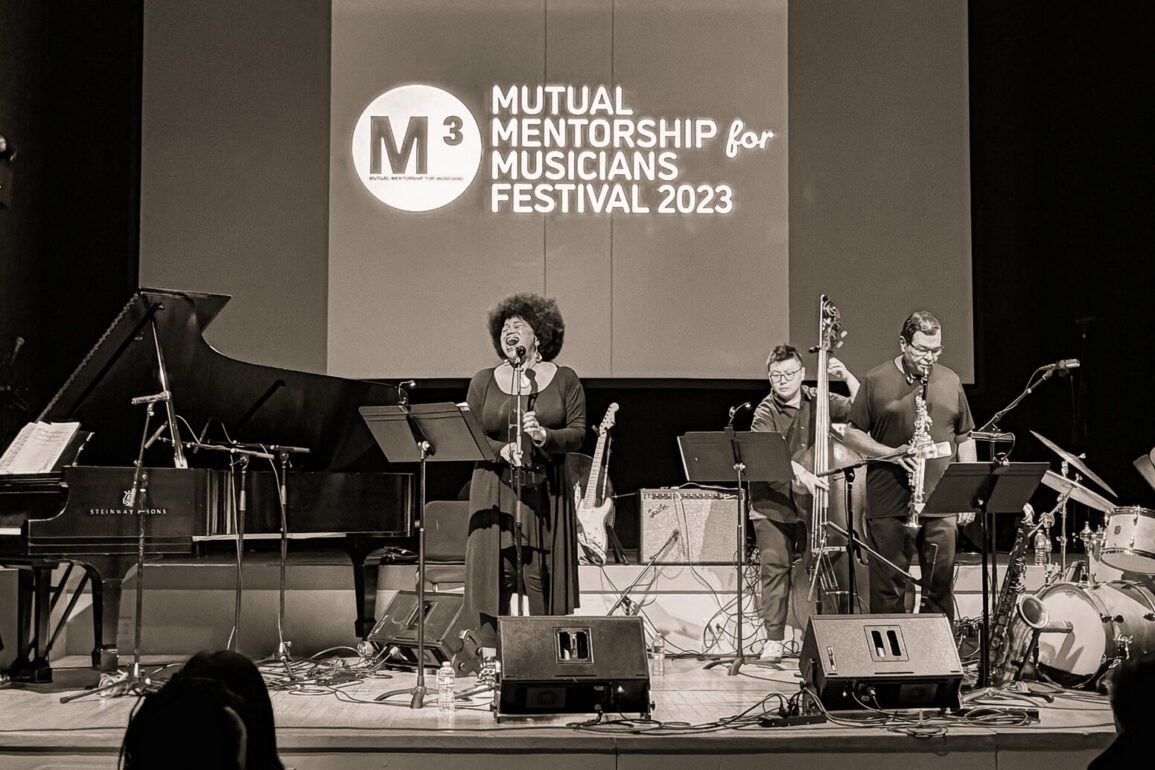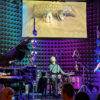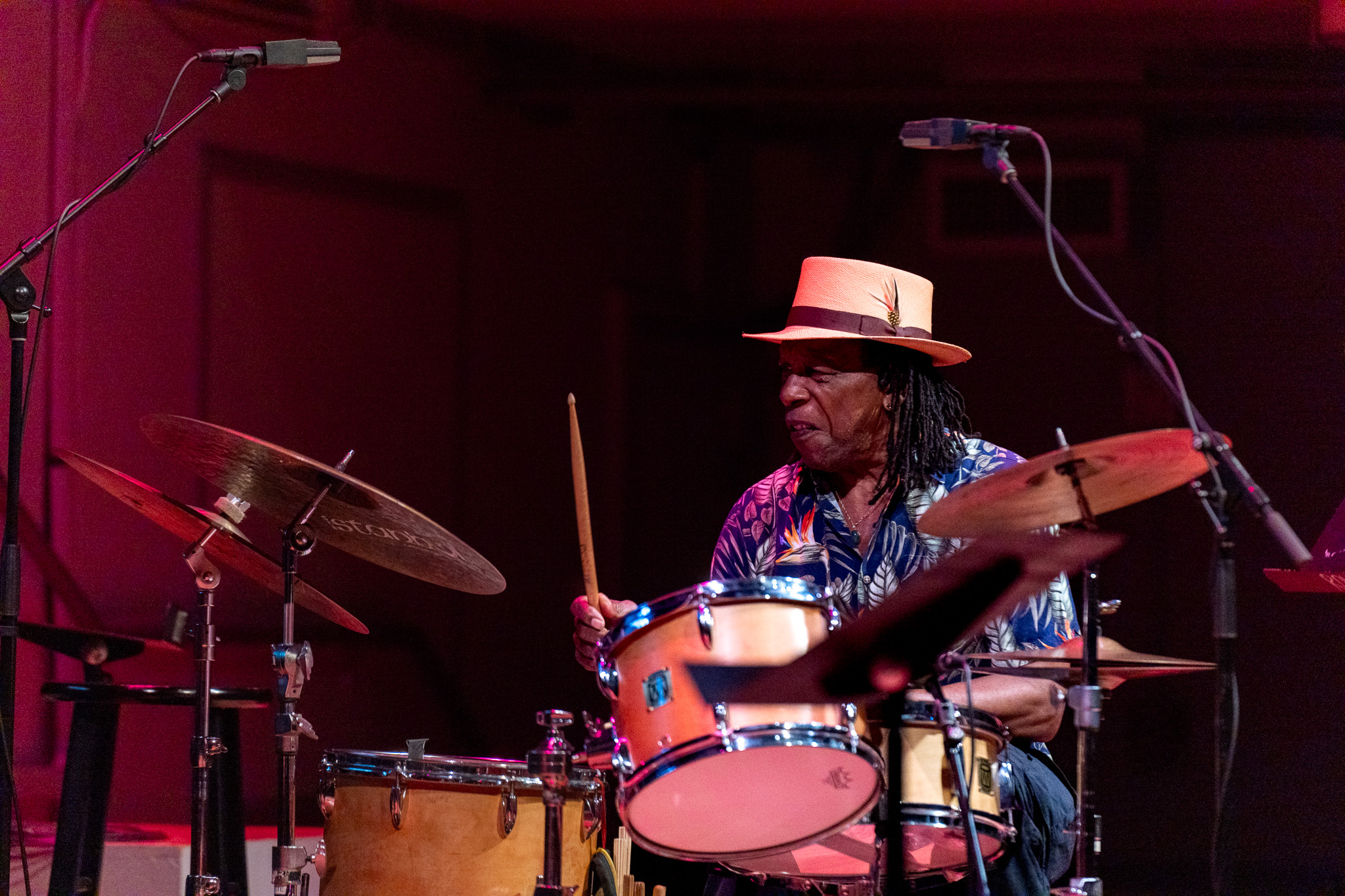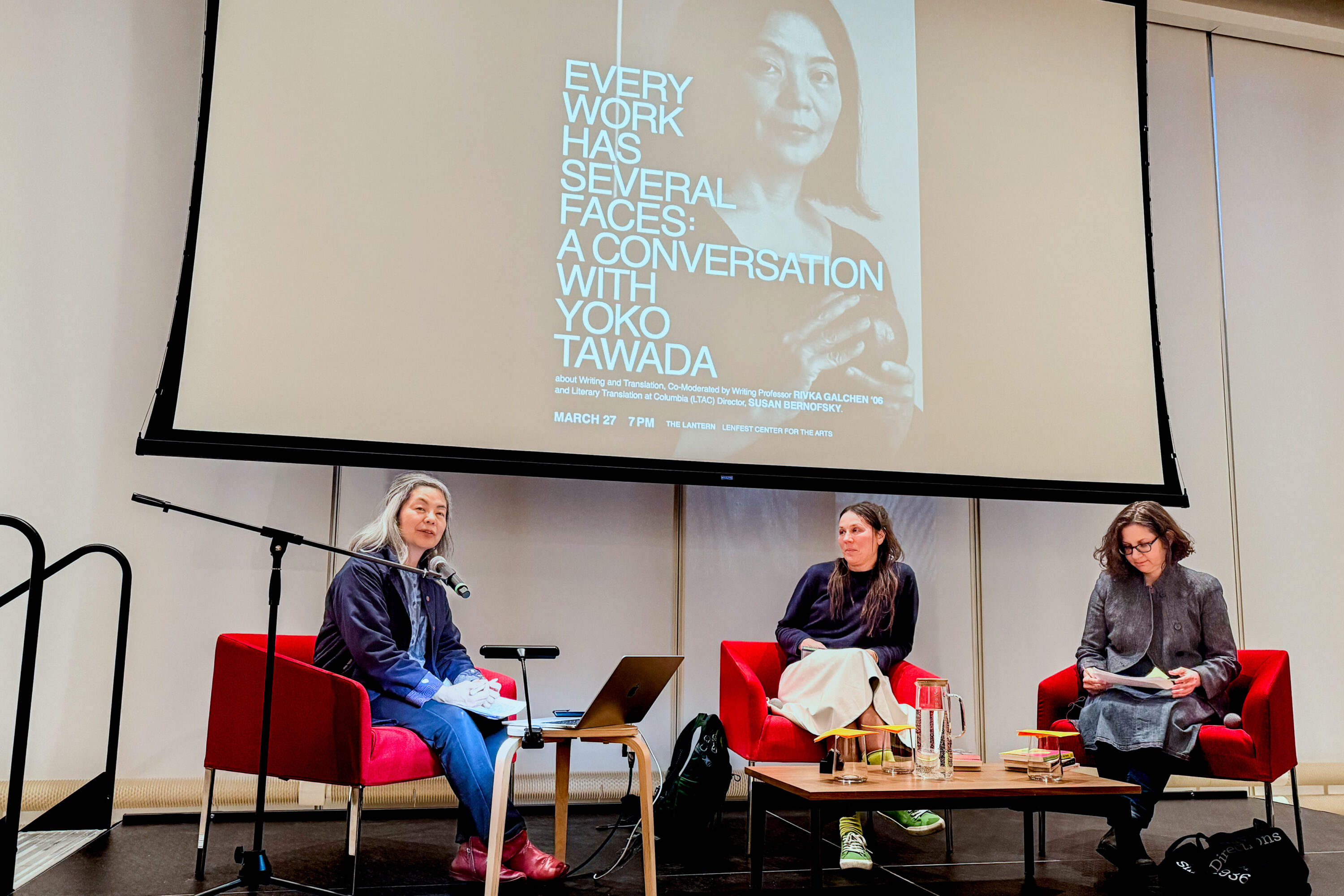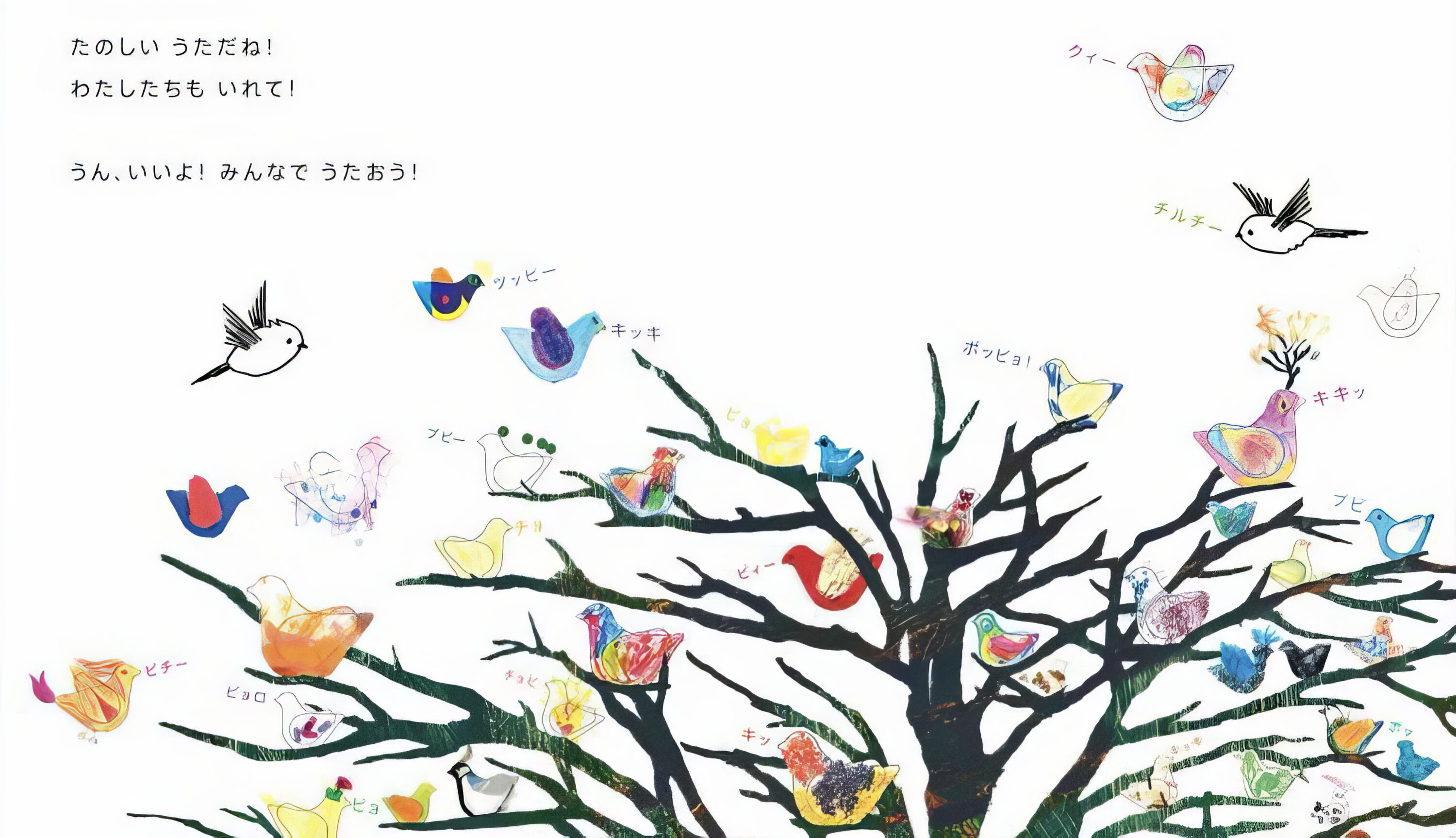This post is also available in:
日本語 (Japanese)
[et_pb_section fb_built=”1″ _builder_version=”4.23.1″ width=”100%” max_width=”100%” custom_padding=”|0px||0px|false|false” custom_css_free_form=”selector .et_pb_text {|| padding-left: 10%;|| padding-right: 10%;||}” global_colors_info=”{}”][et_pb_row _builder_version=”4.23.1″ background_size=”initial” background_position=”top_left” background_repeat=”repeat” width=”100%” max_width=”100%” custom_css_main_element=”width: 100% !important;” global_colors_info=”{}”][et_pb_column type=”4_4″ _builder_version=”4.23.1″ custom_padding=”|||” global_colors_info=”{}” custom_padding__hover=”|||”][et_pb_post_title _builder_version=”4.23.4″ _module_preset=”default” hover_enabled=”0″ sticky_enabled=”0″][/et_pb_post_title][et_pb_text admin_label=”Intro” _builder_version=”4.23.1″ background_size=”initial” background_position=”top_left” background_repeat=”repeat” global_colors_info=”{}”]
From Sept 21 – 23, Mutual Mentorship for Musicians (M³) held its 2nd annual M³ Festival at Roulette Intermedium in Brooklyn, NY. The event brought together musicians from around the world from M³’s 3rd and 4th cohorts, many of them meeting and performing together in person for the first time. One of two public events that M³ held this year, the festival provides a showcase both for its cohort participants and for the organization itself and its mission.
Co-founded in 2020 by vocalist, composer and multi-instrumentalist Jen Shyu and vocalist and composer Sara Serpa, M³ provides a platform to empower, elevate, normalize and give visibility to musicians of historically underrepresented gender identities (including cis women, trans women, trans men and non-binary) in intersection with race, sexuality, or ability across generations in the US and worldwide, through a radical model of mentorship and musical collaborative commissions.
Before founding M³, Shyu and Serpa came to realize that there are many shortcomings and pitfalls in the music business, particularly for female artists and artists of historically underrepresented identities, and they committed to working together to do something about it without having any idea where that might lead them. Looking back at their own careers, they knew that music institutions in many cases failed to hire female and BIPOC artists/instructors who could provide role modeling and a roadmap for how to overcome the challenges their students face.
[/et_pb_text][et_pb_image src=”https://onlylove.art/wp-content/uploads/2023/11/DSC09431-2.jpg” alt=”Jen Shyu and Sara Serpa, photo by Christopher Pelham” title_text=”M3 Festival Day 3, 9/23/23 at Roulette” show_in_lightbox=”on” align=”center” admin_label=”Jen Shyu and Sara Serpa, photo by Christopher Pelham” _builder_version=”4.23.1″ _module_preset=”default” width=”100%” max_width=”100%” max_width_tablet=”50%” max_width_phone=”50%” max_width_last_edited=”on|tablet” custom_margin=”|2%|0px||false|false” custom_padding=”||0px||false|false” filter_saturate=”0%” filter_brightness=”114%” filter_contrast=”114%” custom_css_main_element=”float:left;” custom_css_free_form=”selector img {|| width: 100%!important;|| max-width: 100%!important;||}” enable_caption_text=”on” image_caption_alignment=”center” global_colors_info=”{}”][/et_pb_image][et_pb_text admin_label=”Intro cont’d” _builder_version=”4.23.1″ _module_preset=”default” global_colors_info=”{}”]
They decided to start an organization, which they named M³ (Mutual Mentorship for Musicians), that would provide commission funding and one-on-one and group mutual mentoring to cohorts of female and non-binary artists young and old, publish collections of each cohort’s writings, and produce a festival where the participants could perform together. And due to the clarity and value of that proposal and their own commitment and integrity and track records as artists, Serpa and Shyu quickly succeeded in raising the tens of thousands of dollars necessary to fund it, despite having never run such a program before. At the height of the pandemic, when so many arts organizations were closing their doors to artists and many foundations were actually reducing their support, raising this much money for a new project was something of a miracle. I should note that CRS (Center for Remembering & Sharing), the publisher of onlylove.art, became one of M³’s ongoing sponsors.
Beginning in summer of 2020, M³ began selecting and bringing together 12 artists from different genres, countries, and backgrounds and of different generations to participate in 6 – 9 month cohorts. Meeting online as a group as well as in pairs, the cohort members share experiences and encourage one another as equals, each of them, despite varied backgrounds and circumstances, working to overcome similar challenges to live a healthy life as a working artist and get their music out there.
These opportunities to spend time with peers of different generations and cultures affirm that the participants are not really struggling alone but rather are part of a global movement for inclusivity and empowerment, which in itself is, according to the participants, tremendously meaningful and empowering. They come away with a new network of support as well as inspiration and tools that they can use to fuel their own creations and also to introduce into their respective musical communities.
The $3,000 duo commissioning grants that each cohort participant receives also enable them to get paid to create new work while stretching their compositional muscles collaborating with a fellow artist of a different genre, generation, and background. The commissions and the accompanying opportunities to perform in the M³ Festival are thus a step toward addressing the disparities in opportunities, income, and mentoring that traditionally underrepresented musicians face.
So far 72 artists have participated in the now annual program. This growing network of artists, working independently but also in solidarity with aligned values and goals, has the potential to break down barriers and to transform the music scene to create more equitable institutions and ultimately a safer, healthier, and more inclusive world for all of us.
The 2023 M³ Festival boasted an exceptional roster of 21 M³ cohort artists plus numerous ensemble members, each contributing their unique talents and artistic vision. In the relentless pursuit of balance and diversity, this lineup of composer-performers was thoughtfully curated to embody innovation across genres. “This year’s festival musicians from M³’s third and fourth cohorts are hands down some of the most groundbreaking composer-performers in the world today, each with a stunning clarity of vision that you’ll rarely if ever find gathered together in one place,” said Shyu.
[/et_pb_text][et_pb_image src=”https://onlylove.art/wp-content/uploads/2023/11/treble-clef.png” title_text=”treble clef” admin_label=”Treble clef divider image” _builder_version=”4.23.1″ _module_preset=”default” width=”10%” custom_margin=”|||10%|false|false” custom_padding=”||||false|false” global_colors_info=”{}”][/et_pb_image][et_pb_text admin_label=”Day One Headline” _builder_version=”4.23.1″ _module_preset=”default” global_colors_info=”{}”]
Festival Day One
[/et_pb_text][/et_pb_column][/et_pb_row][et_pb_row column_structure=”1_2,1_2″ admin_label=”Fay Victor and Rebekah Heller” _builder_version=”4.23″ _module_preset=”default” global_colors_info=”{}”][et_pb_column type=”1_2″ _builder_version=”4.23″ _module_preset=”default” global_colors_info=”{}”][et_pb_image src=”https://onlylove.art/wp-content/uploads/2023/11/DSC00358.jpg” alt=”Fay Victor and Rebekah Heller, photo by Christopher Pelham” title_text=”M3 Festival Day 1, 9/21/23 at Roulette” show_in_lightbox=”on” admin_label=”Fay Victor and Rebekah Heller photo” _builder_version=”4.23.1″ _module_preset=”default” enable_caption_text=”on” global_colors_info=”{}”][/et_pb_image][/et_pb_column][et_pb_column type=”1_2″ _builder_version=”4.23″ _module_preset=”default” global_colors_info=”{}”][et_pb_text admin_label=”Fay Victor and Rebekah Heller text” _builder_version=”4.23.1″ _module_preset=”default” global_colors_info=”{}”]
The festival kicked off with M³ second cohort member Fay Victor trading vocal riffs with third cohort member Rebekah Heller (bassoon), each conjuring such a surprising symphony of sounds that one might question whether they were, in fact, being piped in from a full orchestra in some other dimension. International Contemporary Ensemble Artists as well as faculty members with The New School’s College of Performing Arts (CoPA), Victor and Heller playfully stretched the bounds of what these instruments can be used to express.
[/et_pb_text][/et_pb_column][/et_pb_row][et_pb_row admin_label=”Francesca Tanksley (piano) and Newman Taylor Baker (drums)” _builder_version=”4.23.1″ _module_preset=”default” width=”100%” max_width=”100%” global_colors_info=”{}”][et_pb_column type=”4_4″ _builder_version=”4.23″ _module_preset=”default” global_colors_info=”{}”][et_pb_divider _builder_version=”4.23.1″ _module_preset=”default” width=”10%” custom_margin=”|||10%|false|false” global_colors_info=”{}”][/et_pb_divider][et_pb_text admin_label=”Francesca Tanskley and Newman Taylor Baker” _builder_version=”4.23.1″ _module_preset=”default” global_colors_info=”{}”]
Longtime luminaries of the jazz world Francesca Tanksley (piano) of the third cohort and old friend Newman Taylor Baker (drums) — called a “one-man percussion orchestra” by none other than Max Roach — followed with a spiritually uplifting set of swinging jazz compositions by Tanksley peppered with playful surprises and performed with rhythmic authority. Tanksley and Baker go way back, playing for years together in the Billy Harper Quintet and then in Tanksley’s own ensembles and on her early albums. On this night they were performing together for the first time in 13 years but seemed happily at home.
[/et_pb_text][/et_pb_column][/et_pb_row][et_pb_row column_structure=”1_2,1_2″ _builder_version=”4.23.1″ _module_preset=”default” max_width=”80%” global_colors_info=”{}”][et_pb_column type=”1_2″ _builder_version=”4.23″ _module_preset=”default” global_colors_info=”{}”][et_pb_text _builder_version=”4.23.1″ _module_preset=”default” global_colors_info=”{}”][/et_pb_text][et_pb_image src=”https://onlylove.art/wp-content/uploads/2023/11/DSC07870.jpg” alt=”Francesca Tanksley, photo by Christopher Pelham” title_text=”M3 Festival Day 1, 9/21/23 at Roulette” show_in_lightbox=”on” admin_label=”Francesca Tanksley photo” _builder_version=”4.23″ _module_preset=”default” enable_caption_text=”on” global_colors_info=”{}”][/et_pb_image][/et_pb_column][et_pb_column type=”1_2″ _builder_version=”4.23″ _module_preset=”default” global_colors_info=”{}”][et_pb_text _builder_version=”4.23.1″ _module_preset=”default” global_colors_info=”{}”]
[/et_pb_text][et_pb_image src=”https://onlylove.art/wp-content/uploads/2023/11/DSC07853.jpg” alt=”Newman Taylor Baker, photo by Christopher Pelham” title_text=”M3 Festival Day 1, 9/21/23 at Roulette” show_in_lightbox=”on” admin_label=”Newman Taylor Baker photo” _builder_version=”4.23″ _module_preset=”default” enable_caption_text=”on” global_colors_info=”{}”][/et_pb_image][/et_pb_column][/et_pb_row][et_pb_row admin_label=”Francesca Tanksley (piano) and Newman Taylor Baker (drums)” _builder_version=”4.23.1″ _module_preset=”default” width=”100%” max_width=”100%” global_colors_info=”{}”][et_pb_column type=”4_4″ _builder_version=”4.23″ _module_preset=”default” global_colors_info=”{}”][et_pb_text admin_label=”Francesca Tanksley and Newman Taylor Baker cont’d” _builder_version=”4.23.1″ _module_preset=”default” global_colors_info=”{}”]
Incidentally, Baker’s paternal grandfather, Rev. Dr. T. Nelson Baker, was the only former enslaved student to earn a PhD in Philosophy (1903) from Yale University and was also an avid washboard player. The washboard, being a piece of equipment found in nearly every household until the advent of the electric washing machine, afforded people who could not afford to buy musical instruments in stores an opportunity to play, and the washboard was frequently found in Creole, Zyedco, jazz, and blues bands in the early and mid 20th century. This discovery fueled Baker to found WashboardXT, a project through which he renews and expands that tradition by creating and sharing “21st-century music for the acoustic and electronic washboard.”
[/et_pb_text][et_pb_divider _builder_version=”4.23.1″ _module_preset=”default” width=”10%” custom_margin=”|||10%|false|false” global_colors_info=”{}”][/et_pb_divider][/et_pb_column][/et_pb_row][et_pb_row column_structure=”1_2,1_2″ admin_label=”Ria Modak (guitar, voice) and Ángela Varo (violin)” _builder_version=”4.23.1″ _module_preset=”default” max_width=”80%” global_colors_info=”{}”][et_pb_column type=”1_2″ _builder_version=”4.23″ _module_preset=”default” global_colors_info=”{}”][et_pb_text admin_label=”Ria Modak (guitar, voice) and Ángela Varo (violin)” _builder_version=”4.23.1″ _module_preset=”default” global_colors_info=”{}”]
The young and luminous Duo Maratín — third cohort member Ria Modak (guitar, voice) and Ángela Varo (violin) — enchanted with sacred Baul (Bengalese mystics) folk songs arranged for guitar and Andalusian violin. Modak is a PhD student in History at Brown University, “where her research focuses on the role of film, folk, classical and other musics in creating and subverting national identity in South Asia” while her music is grounded in the traditions of India, flamenco, classical guitar, and sadboi jams. Varo is a 2023 graduate of the Berklee College of Music born and raised in Andalucía, Spain, the birthplace of flamenco, and she draws heavily on elements of flamenco, jazz, classical, and Mediterranean traditions while using music to bring people together in support of generational healing and social justice.
[/et_pb_text][et_pb_text admin_label=”Grove by Ria Modak” _builder_version=”4.23.1″ _module_preset=”default” global_colors_info=”{}”][/et_pb_text][/et_pb_column][et_pb_column type=”1_2″ _builder_version=”4.23″ _module_preset=”default” global_colors_info=”{}”][et_pb_image src=”https://onlylove.art/wp-content/uploads/2023/11/DSC07999.jpg” alt=”Ria Modak (guitar, voice) and Ángela Varo (violin), photo by Christopher Pelham” title_text=”M3 Festival Day 1, 9/21/23 at Roulette” show_in_lightbox=”on” admin_label=”Ria Modak (guitar, voice) and Ángela Varo (violin) photo” _builder_version=”4.23″ _module_preset=”default” enable_caption_text=”on” global_colors_info=”{}”][/et_pb_image][et_pb_text _builder_version=”4.23.1″ _module_preset=”default” global_colors_info=”{}”]
[/et_pb_text][/et_pb_column][/et_pb_row][et_pb_row admin_label=”Barbara Togander (turntables, voice) and Cecilia Lopez (synthesizer)” _builder_version=”4.23.1″ _module_preset=”default” width=”100%” max_width=”100%” global_colors_info=”{}”][et_pb_column type=”4_4″ _builder_version=”4.23″ _module_preset=”default” global_colors_info=”{}”][et_pb_divider _builder_version=”4.23.1″ _module_preset=”default” width=”10%” custom_margin=”|||10%|false|false” global_colors_info=”{}”][/et_pb_divider][et_pb_text admin_label=”Barbara Togander text” _builder_version=”4.23.1″ _module_preset=”default” global_colors_info=”{}”]
Barbara Togander (turntables, voice) of the third cohort, born in Sweden in 1964 but raised in Tunisia, Spain, Sweden, Liberia and Argentina, hurtled us into yet another completely different and mind-blowing sonic universe of vocal fragments awhirl in a collage of textures and rhythms with the Argentinian composer, musician and multimedia artist Cecilia Lopez on synthesizer in what turned out to be their very first improvisation together. Togander’s musical development is rooted in jazz but turned toward free jazz and experimental music. She has released nine albums over the past 20 years. Lopez’ music has been featured on The Best Experimental Music on Bandcamp.
[/et_pb_text][/et_pb_column][/et_pb_row][et_pb_row column_structure=”1_2,1_2″ _builder_version=”4.23.1″ _module_preset=”default” max_width=”80%” global_colors_info=”{}”][et_pb_column type=”1_2″ _builder_version=”4.23″ _module_preset=”default” global_colors_info=”{}”][et_pb_image src=”https://onlylove.art/wp-content/uploads/2023/11/DSC08062.jpg” alt=”Barbara Togander (turntables, voice), photo by Christopher Pelham” title_text=”M3 Festival Day 1, 9/21/23 at Roulette” show_in_lightbox=”on” admin_label=”Barbara Togander photo” _builder_version=”4.23″ _module_preset=”default” enable_caption_text=”on” global_colors_info=”{}”][/et_pb_image][et_pb_text _builder_version=”4.23.1″ _module_preset=”default” global_colors_info=”{}”]
[/et_pb_text][/et_pb_column][et_pb_column type=”1_2″ _builder_version=”4.23″ _module_preset=”default” global_colors_info=”{}”][et_pb_image src=”https://onlylove.art/wp-content/uploads/2023/11/DSC08072.jpg” alt=”Cecilia Lopez (synthesizer), photo by Christopher Pelham” title_text=”M3 Festival Day 1, 9/21/23 at Roulette” show_in_lightbox=”on” admin_label=”Cecilia Lopez (synthesizer) photo” _builder_version=”4.23″ _module_preset=”default” enable_caption_text=”on” global_colors_info=”{}”][/et_pb_image][et_pb_text _builder_version=”4.23.1″ _module_preset=”default” global_colors_info=”{}”]
[/et_pb_text][/et_pb_column][/et_pb_row][et_pb_row _builder_version=”4.23.1″ _module_preset=”default” width=”100%” max_width=”100%” global_colors_info=”{}”][et_pb_column type=”4_4″ _builder_version=”4.23.1″ _module_preset=”default” global_colors_info=”{}”][et_pb_divider _builder_version=”4.23.1″ _module_preset=”default” width=”10%” custom_margin=”|||10%|false|false” global_colors_info=”{}”][/et_pb_divider][/et_pb_column][/et_pb_row][et_pb_row column_structure=”1_2,1_2″ _builder_version=”4.23.1″ _module_preset=”default” max_width=”80%” global_colors_info=”{}”][et_pb_column type=”1_2″ _builder_version=”4.23″ _module_preset=”default” global_colors_info=”{}”][et_pb_image src=”https://onlylove.art/wp-content/uploads/2023/11/DSC08134.jpg” alt=”Milena Casado (photo by Christopher Pelham)” title_text=”M3 Festival Day 1, 9/21/23 at Roulette” show_in_lightbox=”on” admin_label=”Milena Casado photo” _builder_version=”4.23″ _module_preset=”default” enable_caption_text=”on” global_colors_info=”{}”][/et_pb_image][/et_pb_column][et_pb_column type=”1_2″ _builder_version=”4.23″ _module_preset=”default” global_colors_info=”{}”][et_pb_text admin_label=”Milena Casado and Morgan Guerin text” _builder_version=”4.23.1″ _module_preset=”default” global_colors_info=”{}”]
Milena Casado (third cohort), a young composer, flugelhorn and trumpet player from Spain who has already played with the likes of Terri Lyne Carrington and Kris Davis, used her set to try something new with a frequent collaborator, creating trumpet loops over the gurgling synth sounds of the also 20-something “wunderkind saxophonist and multi-instrumentalist” (The New York Times) Morgan Guerin. Like several other musicians who have participated in M³ cohorts, Casado studied at the Berklee Institute of Jazz and Gender Justice, which is directed by Terri Lyne Carrington.
[/et_pb_text][/et_pb_column][/et_pb_row][et_pb_row _builder_version=”4.23.1″ background_size=”initial” background_position=”top_left” background_repeat=”repeat” width=”100%” max_width=”100%” global_colors_info=”{}”][et_pb_column type=”4_4″ _builder_version=”4.16″ custom_padding=”|||” global_colors_info=”{}” custom_padding__hover=”|||”][et_pb_divider _builder_version=”4.23.1″ _module_preset=”default” width=”10%” custom_margin=”|||10%|false|false” global_colors_info=”{}”][/et_pb_divider][et_pb_text admin_label=”Layale Chaker text” _builder_version=”4.23.1″ background_size=”initial” background_position=”top_left” background_repeat=”repeat” global_colors_info=”{}”]
Violinist and composer Layale Chaker, also a member of the third cohort, closed the first night with an arrangement of her “Radio Afloat” suite, performed with Phillip Golub (piano, microtonal keyboard) and Adriano Vincentino (drums). Chaker was born in Paris but mostly raised in Lebanon before eventually relocating to NYC and is known for music incorporating Arab and Western classical sounds with improvisational elements of jazz. “Radio Afloat,” inspired by the poem “The Trace of Blue Passion” by Lebanese writer Ounsi el-Hage, exhibits these characteristics. Arabic maqam melodies punctuated by eruptions of urgent and unpredictable rhythms and microtonal patterns allowed the music to invoke the familiar while interrogating and re-imagining it, and thematically this spoke to the relationships between people and nature and the conflicts over natural resources to which the poem alludes.
[/et_pb_text][et_pb_image src=”https://onlylove.art/wp-content/uploads/2023/11/Layale-Chaker-DSC08231.jpg” admin_label=”Layale Chaker photo” _builder_version=”4.23.1″ _module_preset=”default” width=”100%” max_width=”100%” enable_caption_text=”on” global_colors_info=”{}”][/et_pb_image][et_pb_text admin_label=”Layale Chaker text part 2″ _builder_version=”4.23.1″ background_size=”initial” background_position=”top_left” background_repeat=”repeat” global_colors_info=”{}”]Chaker and her ensemble have been busy touring this new material domestically as well as internationally, but on October 27, the New York Philharmonic presented another new work of Chaker’s, the NY premiere of her double concerto, “Dawning,” alongside Kinan Azmeh, for clarinet, violin and orchestra at David Geffin Hall at Lincoln Center. “Dawning” was co-commissioned with Nebraska Crossroads Music Festival and Lincoln’s Symphony Orchestra, and the piece appeared on a program with another work by Korean composer Unsuk Chin, who is also a woman. This is a tremendous accomplishment not only because it’s Chaker’s debut at Lincoln Center, as a composer and as a violinist, but also because only 5% of works performed by major orchestras are composed by women and only about 1% by non-white women.[/et_pb_text][/et_pb_column][/et_pb_row][et_pb_row column_structure=”2_5,3_5″ _builder_version=”4.23.1″ _module_preset=”default” global_colors_info=”{}”][et_pb_column type=”2_5″ _builder_version=”4.23.1″ _module_preset=”default” global_colors_info=”{}”][et_pb_text _builder_version=”4.23.1″ _module_preset=”default” global_colors_info=”{}”]
[/et_pb_text][/et_pb_column][et_pb_column type=”3_5″ _builder_version=”4.23.1″ _module_preset=”default” global_colors_info=”{}”][et_pb_video src=”https://www.youtube.com/watch?v=60CpFqc9lQo” _builder_version=”4.23.1″ _module_preset=”default” global_colors_info=”{}”][/et_pb_video][/et_pb_column][/et_pb_row][et_pb_row _builder_version=”4.23.1″ background_size=”initial” background_position=”top_left” background_repeat=”repeat” width=”100%” max_width=”100%” global_colors_info=”{}”][et_pb_column type=”4_4″ _builder_version=”4.16″ custom_padding=”|||” global_colors_info=”{}” custom_padding__hover=”|||”][et_pb_image src=”https://onlylove.art/wp-content/uploads/2023/11/treble-clef.png” title_text=”treble clef” admin_label=”Treble clef divider image” _builder_version=”4.23.1″ _module_preset=”default” width=”10%” custom_margin=”|||10%|false|false” custom_padding=”||||false|false” global_colors_info=”{}”][/et_pb_image][et_pb_text admin_label=”Day Two Headline” _builder_version=”4.23.1″ _module_preset=”default” global_colors_info=”{}”]
Festival Day Two
[/et_pb_text][et_pb_image src=”https://onlylove.art/wp-content/uploads/2023/11/Ni-Nyoman-Srayamurtikanti-DSC00492.jpg” alt=”Victoria Lo Mellin, Liz Behrend, Ni Nyoman Srayamurtikanti” title_text=”M3 Festival Day 2, 9/22/23 at Roulette” admin_label=”Victoria Lo Mellin, Liz Behrend, Ni Nyoman Srayamurtikanti photo” _builder_version=”4.23.1″ _module_preset=”default” width=”100%” max_width=”100%” enable_caption_text=”on” global_colors_info=”{}”][/et_pb_image][et_pb_text admin_label=”Festival Day Two Victoria Lo Mellin, Liz Behrend, Ni Nyoman Srayamurtikanti text” _builder_version=”4.23.1″ background_size=”initial” background_position=”top_left” background_repeat=”repeat” global_colors_info=”{}”]
Day two of the festival featured many of the artists from the fourth M³ cohort, beginning with Ni Nyoman Srayamurtikanti, who traveled all the way from Bali to perform with Victoria Lo Mellin and Liz Behrend of New York City’s Gamelan Dharma Swara (GDS), one of the leading Balinese gamelan and dance groups in the United States.
[/et_pb_text][et_pb_text admin_label=”Festival Day Two Victoria Lo Mellin, Liz Behrend, Ni Nyoman Srayamurtikanti text cont’d” _builder_version=”4.23.1″ background_size=”initial” background_position=”top_left” background_repeat=”repeat” global_colors_info=”{}”]
Like many arts organizations, GDS was forced to go into hibernation when the pandemic hit, reluctantly putting their more than 4,000 pounds of instruments into storage. GDS president Lo Mellin gave birth to twins during this time yet last year re-established the GDS community at the Ridgewood Presbyterian Church in Queens and resumed an active schedule of workshops at performances throughout the region, including at Little Island, Lincoln Center, and the Hudson River Museum. Working with a contemporary composer from Bali who grew up immersed in the traditional music traditions yet is also expanding that tradition provided an invaluable opportunity for the local Balinese diaspora community to take part in the living tradition.
[/et_pb_text][et_pb_divider _builder_version=”4.23.1″ _module_preset=”default” width=”10%” custom_margin=”|||10%|false|false” global_colors_info=”{}”][/et_pb_divider][/et_pb_column][/et_pb_row][et_pb_row column_structure=”1_2,1_2″ _builder_version=”4.23.1″ _module_preset=”default” global_colors_info=”{}”][et_pb_column type=”1_2″ _builder_version=”4.23.1″ _module_preset=”default” global_colors_info=”{}”][et_pb_text admin_label=”Festival Day Two Gabi Motuba text” _builder_version=”4.23.1″ background_size=”initial” background_position=”top_left” background_repeat=”repeat” global_colors_info=”{}”]The second M³ artist of day two also travelled a long way. Hailing from Johannesburg, South Africa, the 31-year-old composer and vocalist Gabi Motuba made her NYC debut at the Festival, inviting bassist Liany Mateo to join her set after meeting there. Matuba delivered a brooding and stripped-down collection of self-penned spirituals, originally written for voice and string quartet for her album “The Sabbath,” which features lyrics that bear witness to historical inequities and perseverance set to slow and haunting melodies, rendered here by Mateo’s standup bass and Matuba’s crystalline voice, punctuated by defiant vocal growls. Last year, Motuba served as the first resident composer for the South African Soweto Theater Music Tutorial Programme, developing a music curriculum with which to train the next generation of South African musicians.[/et_pb_text][/et_pb_column][et_pb_column type=”1_2″ _builder_version=”4.23.1″ _module_preset=”default” global_colors_info=”{}”][et_pb_image src=”https://onlylove.art/wp-content/uploads/2023/11/Gabi-Motuba-and-Linny-Mateo-DSC08472.jpg” alt=”Gabi Motuba (voice) and Linny Mateo (bass), photo by Christopher Pelham” title_text=”M3 Festival Day 2, 9/22/23 at Roulette” admin_label=”Gabi Motuba (voice) and Linny Mateo (bass) photo” _builder_version=”4.23.1″ _module_preset=”default” enable_caption_text=”on” global_colors_info=”{}”][/et_pb_image][et_pb_text admin_label=”song by Gabi” _builder_version=”4.23.1″ _module_preset=”default” global_colors_info=”{}”]
[/et_pb_text][/et_pb_column][/et_pb_row][et_pb_row _builder_version=”4.23.1″ _module_preset=”default” width=”100%” max_width=”100%” global_colors_info=”{}”][et_pb_column type=”4_4″ _builder_version=”4.23.1″ _module_preset=”default” global_colors_info=”{}”][et_pb_divider _builder_version=”4.23.1″ _module_preset=”default” width=”10%” custom_margin=”|||10%|false|false” global_colors_info=”{}”][/et_pb_divider][et_pb_text admin_label=”Festival Day Two Leonor Falcon text” _builder_version=”4.23.1″ background_size=”initial” background_position=”top_left” background_repeat=”repeat” global_colors_info=”{}”]
Fourth cohort member Leonor Falcón, a Venezuela-born violinist, violist, composer, improviser, performer, and educator who lived in NYC for a number of years before recently relocating to Barcelona where she now lives with her husband and young child, returned to play the next set with her M³ duo partner El Cuerpo Rítmico (aka Paula Shocron, from Argentina) on piano and Cecilia Lopez (Argentina), who performed the previous night with Barbara Togander, on electronics. Their set opened with flurries of electronic sounds evoking insects and non-human footsteps beneath ominous piano lines and doleful strings, by turns unsettling, playful, and manic.
Shocron and Falcón have lately been making films as well as music. Created through collages of images overlaid with text and spare tracks of piano and viola, their M³ duo commission, “Nuestra historia, nuestro fuego” (Our story, our fire), is a somber elegy to marginalized and mistreated women and mothers, to those left behind, to their suffering and perseverance and grace.
[/et_pb_text][/et_pb_column][/et_pb_row][et_pb_row column_structure=”1_2,1_2″ _builder_version=”4.23.1″ _module_preset=”default” max_width=”80%” global_colors_info=”{}”][et_pb_column type=”1_2″ _builder_version=”4.23.1″ _module_preset=”default” global_colors_info=”{}”][et_pb_image src=”https://onlylove.art/wp-content/uploads/2023/11/DSC08607.jpg” alt=”El Cuerpo Ritmico (photo by Christopher Pelham)” title_text=”M3 Festival Day 2, 9/22/23 at Roulette” admin_label=”El Cuerpo Ritmico photo” _builder_version=”4.23.1″ _module_preset=”default” enable_caption_text=”on” global_colors_info=”{}”][/et_pb_image][et_pb_video src=”https://www.youtube.com/watch?v=2vuY5_Ji1bk” _builder_version=”4.23.1″ _module_preset=”default” global_colors_info=”{}”][/et_pb_video][/et_pb_column][et_pb_column type=”1_2″ _builder_version=”4.23.1″ _module_preset=”default” global_colors_info=”{}”][et_pb_image src=”https://onlylove.art/wp-content/uploads/2023/11/Leonor-Falcon-DSC08541.jpg” alt=”Leonor Falcón” title_text=”M3 Festival Day 2, 9/22/23 at Roulette” admin_label=”Leonor Falcón image” _builder_version=”4.23.1″ _module_preset=”default” enable_caption_text=”on” global_colors_info=”{}”][/et_pb_image][et_pb_video src=”https://www.youtube.com/watch?v=P0oKAz5dNQM&t=3s” _builder_version=”4.23.1″ _module_preset=”default” global_colors_info=”{}”][/et_pb_video][/et_pb_column][/et_pb_row][et_pb_row _builder_version=”4.23.1″ _module_preset=”default” width=”100%” max_width=”100%” global_colors_info=”{}”][et_pb_column type=”4_4″ _builder_version=”4.23.1″ _module_preset=”default” global_colors_info=”{}”][et_pb_divider _builder_version=”4.23.1″ _module_preset=”default” width=”10%” custom_margin=”|||10%|false|false” global_colors_info=”{}”][/et_pb_divider][et_pb_text admin_label=”Festival Day Two Goussy Célestin text” _builder_version=”4.23.1″ background_size=”initial” background_position=”top_left” background_repeat=”repeat” global_colors_info=”{}”]
Goussy Célestin (piano/voice) and her fourth cohort duo partner, drummer and composer Francesca Remigi, welcomed fellow fourth cohort member Naomi Moon Siegel (trombone), fifth cohort member Jessica Jones (tenor sax), and Liany Mateo (upright bass) — to the stage to share Célestin’s prayer to the ancestors and invocations of Alice Coltrane along with vibrant compositions by Remigi. Sometimes the music was carnivalesque, at other times more introspective, always seemingly spiritual, and one couldn’t be sure which impulses were originating with Célestine and which were coming from Remigi or from both of them.
A mother of two boys and a dancer as well as a pianist, vocalist, and composer, Célestin has lately been sharing Haitian folk and spiritual music and dance diffracted through the lens of New Orleans’ second-line, Haiti’s Rara tradition (an Easter week celebration in Haiti embracing traditional vodou ceremonies, music-making and dance that harkens back to slavery times and before that to Africa), and jazz with her Ayiti Brass Ensemble while serving on the faculty of Jazz at Lincoln Center.
Splitting time between NYC and Bergamo, Remigi is known for her international collaborations in the avant-garde and free improv jazz scene and has played with celebrated artists such as Kris Davis and M³ 1st cohort member Val Jeanty and has led bands performing in festivals and venues all over the world. An alumna of the Berklee Global Jazz Institute Master Program and the Berklee Jazz & Gender Justice Institute, she has released two albums as band leader and three more as co-leader.
[/et_pb_text][/et_pb_column][/et_pb_row][et_pb_row _builder_version=”4.23.1″ _module_preset=”default” width=”100%” max_width=”100%” global_colors_info=”{}”][et_pb_column type=”4_4″ _builder_version=”4.23.1″ _module_preset=”default” global_colors_info=”{}”][et_pb_image src=”https://onlylove.art/wp-content/uploads/2023/11/Goussy-Celestin-ensemble-DSC08706-2.jpg” alt=”Goussy Célestin (piano/voice), Naomi Moon Siegel (trombone), Jessica Jones (tenor sax), Liany Mateo (upright bass), and Francesca Remigi (drums)” title_text=”M3 Festival Day 2, 9/22/23 at Roulette” force_fullwidth=”on” admin_label=”Goussy Celestin ensemble photo” _builder_version=”4.23.1″ _module_preset=”default” enable_caption_text=”on” global_colors_info=”{}”][/et_pb_image][/et_pb_column][/et_pb_row][et_pb_row _builder_version=”4.23.1″ _module_preset=”default” width=”100%” max_width=”100%” global_colors_info=”{}”][et_pb_column type=”4_4″ _builder_version=”4.23.1″ _module_preset=”default” global_colors_info=”{}”][et_pb_image src=”https://onlylove.art/wp-content/uploads/2023/11/treble-clef.png” title_text=”treble clef” admin_label=”Treble clef divider image” _builder_version=”4.23.1″ _module_preset=”default” width=”10%” custom_margin=”|||10%|false|false” custom_padding=”||||false|false” global_colors_info=”{}”][/et_pb_image][et_pb_text admin_label=”Day Three Headline” _builder_version=”4.23.1″ _module_preset=”default” global_colors_info=”{}”]
Festival Day Three
[/et_pb_text][et_pb_text admin_label=”Naomi Moon Siegel text” _builder_version=”4.23.1″ background_size=”initial” background_position=”top_left” background_repeat=”repeat” global_colors_info=”{}”]
The third night of the Festival began with Naomi Moon Siegel (trombone), Leonor Falcón (violin), and Francesca Remigi (drums) returning alongside 4th cohort member Jessica Ackerley (Guitar) and Kelsey Mines (bass) with the Missoula, Montana-based Siegel as bandleader. A genre-defying composer, Siegel and the ensemble moved effortlessly in and out of traditional jazz, new music, fusion, popular, and world music idioms to create music that sounded fresh and vital. The first piece raucously expressed our addictive and sometimes turbulent relationships with our phones; the second tenderly paid tribute to the experiences of childhood. The set continued with “Holding All the Broken Pieces” an arrangement of the first movement of a suite composed for Siegel’s upcoming third album about making space for pain and grief and all the experiences for which our culture does not necessarily leave space, and concluded with a meditation called “Fortifying Love.”
Like M³ co-founders Jen Shyu and Sara Serpa and many of the other M³ artists, Siegel is a dedicated advocate for intersectional gender justice in jazz and music settings, especially educational institutions. She leads workshops and gives presentations around the country to build awareness around toxic gender norms in jazz, using an intersectional approach to work towards systemic shifts in our music culture.
[/et_pb_text][/et_pb_column][/et_pb_row][et_pb_row column_structure=”1_3,1_3,1_3″ _builder_version=”4.23.1″ _module_preset=”default” global_colors_info=”{}”][et_pb_column type=”1_3″ _builder_version=”4.23.1″ _module_preset=”default” global_colors_info=”{}”][et_pb_image src=”https://onlylove.art/wp-content/uploads/2023/11/Naomi-Moon-Siegel-DSC08781.jpg” alt=”Naomi Moon Siegel (photo by Christopher Pelham)” title_text=”M3 Festival Day 3, 9/23/23 at Roulette” admin_label=”Naomi Moon Siegel photo” _builder_version=”4.23.1″ _module_preset=”default” enable_caption_text=”on” global_colors_info=”{}”][/et_pb_image][/et_pb_column][et_pb_column type=”1_3″ _builder_version=”4.23.1″ _module_preset=”default” global_colors_info=”{}”][et_pb_image src=”https://onlylove.art/wp-content/uploads/2023/11/Kelsey-Mines-DSC08758.jpg” alt=”Kelsey Mines (photo by Christopher Pelham)” title_text=”M3 Festival Day 3, 9/23/23 at Roulette” admin_label=”Kelsey Mines photo” _builder_version=”4.23.1″ _module_preset=”default” enable_caption_text=”on” global_colors_info=”{}”][/et_pb_image][/et_pb_column][et_pb_column type=”1_3″ _builder_version=”4.23.1″ _module_preset=”default” global_colors_info=”{}”][et_pb_image src=”https://onlylove.art/wp-content/uploads/2023/11/Francesca-Remigi-DSC08773.jpg” alt=”Francesca Remigi (photo by Christopher Pelham)” title_text=”M3 Festival Day 3, 9/23/23 at Roulette” admin_label=”Francesca Remigi photo” _builder_version=”4.23.1″ _module_preset=”default” enable_caption_text=”on” global_colors_info=”{}”][/et_pb_image][/et_pb_column][/et_pb_row][et_pb_row _builder_version=”4.23.1″ _module_preset=”default” width=”100%” max_width=”100%” global_colors_info=”{}”][et_pb_column type=”4_4″ _builder_version=”4.23.1″ _module_preset=”default” global_colors_info=”{}”][et_pb_video src=”https://www.youtube.com/watch?v=_gEKnZ_Nul4″ admin_label=”Naomi Moon Siegel video” _builder_version=”4.23.1″ _module_preset=”default” width=”80%” max_width=”80%” custom_margin=”|||10%|false|false” global_colors_info=”{}”][/et_pb_video][et_pb_divider _builder_version=”4.23.1″ _module_preset=”default” width=”10%” custom_margin=”|||10%|false|false” global_colors_info=”{}”][/et_pb_divider][et_pb_text admin_label=”Vino Wu and Ruth Naomi Floyd text” _builder_version=”4.23.1″ background_size=”initial” background_position=”top_left” background_repeat=”repeat” global_colors_info=”{}”]
Bassist and composer Vino Wu travelled all the way from China to play in person for the first time with his 4th cohort duo partner, Ruth Naomi Floyd. For more than 25 years, Floyd, a vocalist and composer born and still based in Philadelphia, has been writing Christian spiritual songs in the progressive ensemble jazz tradition and bringing them to searing, soaring life with her impeccable mezzo-soprano voice. Wu earned a Master’s Degree from the Berklee College Global Institute of Jazz and is well-versed in various strains of music, including jazz, improvised music, hip-hop, and pop music. Wu’s own compositions to date often focus on issues of identity, authenticity, and, like Floyd’s, social justice. Joined onstage by Aaron Graves (piano), Bill Murray (reeds), and Ronnie Burrage (drums), Floyd and Wu brought down the house.
[/et_pb_text][/et_pb_column][/et_pb_row][et_pb_row column_structure=”2_3,1_3″ _builder_version=”4.23.1″ _module_preset=”default” global_colors_info=”{}”][et_pb_column type=”2_3″ _builder_version=”4.23.1″ _module_preset=”default” global_colors_info=”{}”][et_pb_image src=”https://onlylove.art/wp-content/uploads/2023/11/Ruth-Naomi-Floyd-DSC08862.jpg” alt=”Ruth Naomi Floyd (photo by Christopher Pelham)” title_text=”M3 Festival Day 3, 9/23/23 at Roulette” admin_label=”Ruth Naomi Floyd photo” _builder_version=”4.23.1″ _module_preset=”default” enable_caption_text=”on” global_colors_info=”{}”][/et_pb_image][/et_pb_column][et_pb_column type=”1_3″ _builder_version=”4.23.1″ _module_preset=”default” global_colors_info=”{}”][et_pb_image src=”https://onlylove.art/wp-content/uploads/2023/11/Vino-Wu-DSC08962.jpg” alt=”Vino Wu (photo by Christopher Pelham)” title_text=”M3 Festival Day 3, 9/23/23 at Roulette” admin_label=”Vino Wu photo” _builder_version=”4.23.1″ _module_preset=”default” enable_caption_text=”on” global_colors_info=”{}”][/et_pb_image][/et_pb_column][/et_pb_row][et_pb_row _builder_version=”4.23.1″ _module_preset=”default” width=”100%” max_width=”100%” global_colors_info=”{}”][et_pb_column type=”4_4″ _builder_version=”4.23.1″ _module_preset=”default” global_colors_info=”{}”][et_pb_text admin_label=”Vino Wu and Ruth Naomi Floyd text” _builder_version=”4.23.1″ background_size=”initial” background_position=”top_left” background_repeat=”repeat” global_colors_info=”{}”]
The Frederick Douglass Jazz Works is Ruth’s latest body of compositions for jazz septet, based on the speeches and writings of the great leading orator, abolitionist, writer, publisher, and statesman. This body of work won the Best Vocal Recital Award at the San Francisco Classical Voice Audience Choice Awards for 2020- 2021. In 2021, in partnership with Intercultural Journeys, Ruth was commissioned to compose a three-song cycle for voice and cello in honor of the legacy and activism of the great contralto Marian Anderson. Ruth and Intercultural Journeys partnered on another commission, for which the National Endowment for the Arts awarded a Project Grant in May 2021. This body of work, The Frances Suite, will explore the life, advocacy, and literary work of Frances Ellen Watkin Harper, and will feature an all-female ensemble of color. The Orrin Evans Trio, featuring Ruth, was named one of NPR Music’s Best Live Sessions of 2021 for their powerful anthem of liberation, the African American Spiritual, “Oh Freedom.”
[/et_pb_text][et_pb_divider _builder_version=”4.23.1″ _module_preset=”default” width=”10%” custom_margin=”|||10%|false|false” global_colors_info=”{}”][/et_pb_divider][et_pb_text admin_label=”bright bright text” _builder_version=”4.23.1″ background_size=”initial” background_position=”top_left” background_repeat=”repeat” global_colors_info=”{}”]
The duo bright bright, consisting of fourth cohort duo partners Jessica Ackerley (guitar) and Joan Sue (vocals/synth), invited us to hear spoken language as pure sound and experience the fertile and expansive terrain that such a musical duet can produce. At the start Sue barked out or sang monosyllables defiantly in a slow and steady rhythm, which Ackerley answered with buzzing single notes on her guitar. This prelude gave way to a manic, conversational delivery from Sue, riffing in Turkish on — she told us afterward — the pitfalls of living abroad, in a manner reminiscent of Robin Williams.
Ackerley kept her head down and listened stoically to the words she could not understand, receiving them as pure sounds to which she responded only by making sounds with her guitar. When Sue spoke or sang more tones, Ackerley played more notes. Eventually, Sue’s speaking gave way to vocalizing wordless sounds and singing, creating unusual intonations and melodies which Ackerley seemed to translate into pulsing rhythms.
[/et_pb_text][/et_pb_column][/et_pb_row][et_pb_row column_structure=”2_3,1_3″ _builder_version=”4.23.1″ _module_preset=”default” global_colors_info=”{}”][et_pb_column type=”2_3″ _builder_version=”4.23.1″ _module_preset=”default” global_colors_info=”{}”][et_pb_image src=”https://onlylove.art/wp-content/uploads/2023/11/Joan-Sue-DSC00589.jpg” alt=”Joan Sue (photo by Christopher Pelham)” title_text=”M3 Festival Day 3, 9/23/23 at Roulette” admin_label=”Joan Sue photo” _builder_version=”4.23.1″ _module_preset=”default” enable_caption_text=”on” global_colors_info=”{}”][/et_pb_image][/et_pb_column][et_pb_column type=”1_3″ _builder_version=”4.23.1″ _module_preset=”default” global_colors_info=”{}”][et_pb_image src=”https://onlylove.art/wp-content/uploads/2023/11/Jessica-Ackerley-DSC09129.jpg” alt=”Jessica Ackerley (photo by Christopher Pelham)” title_text=”M3 Festival Day 3, 9/23/23 at Roulette” admin_label=”Jessica Ackerley photo” _builder_version=”4.23.1″ _module_preset=”default” enable_caption_text=”on” global_colors_info=”{}”][/et_pb_image][/et_pb_column][/et_pb_row][et_pb_row _builder_version=”4.23.1″ _module_preset=”default” width=”100%” max_width=”100%” global_colors_info=”{}”][et_pb_column type=”4_4″ _builder_version=”4.23.1″ _module_preset=”default” global_colors_info=”{}”][et_pb_text admin_label=”bright bright text cont’d” _builder_version=”4.23.1″ background_size=”initial” background_position=”top_left” background_repeat=”repeat” custom_padding=”5px|||||” global_colors_info=”{}”]
Listening to them, I imagined a sci-fi depiction of a hive mind trying to sing and communicate with itself in alarm while another entity attempts to hack its consciousness by subjecting it to code rendered as patterns of buzzing from an electric mosquito zapper! At times, the conversation became calm only to grow more animated again, producing more new sounds and rhythms. The duo managed to be riveting, both theatrically and sonically, despite the fact that few if any of us in the audience could understand Turkish and few of the sound patterns could be termed music in the traditional sense.
Although the theatrical aspect of Sue’s vocal performance is what was most immediately recognizable, there was also a conscious musical quality to her delivery, which in this performance she supplemented with synth sounds. Listening to this conversation that was both linguistic — but not understandable as such — and musical invited us to become more conscious of how our minds seek for meaning and at times invent meaning where we cannot establish it. It also invited us to become more aware of the feelings that arise in us when we listen to someone speak and to how they speak, even when we don’t know what they are saying. It also stretched the bounds of what we think music can sound like or be. Sue’s performance, shaped by the Turkish language and by her own feelings about what she was expressing, offered to Ackerley the opportunity to respond to rhythms, phrasing, and sounds undoubtedly different from what any instrumentalist working in any established tradition might play, and Ackerley did indeed end up responding in a way that she likely never would have composed.
[/et_pb_text][et_pb_divider _builder_version=”4.23.1″ _module_preset=”default” width=”10%” custom_margin=”|||10%|false|false” global_colors_info=”{}”][/et_pb_divider][/et_pb_column][/et_pb_row][et_pb_row _builder_version=”4.23.1″ _module_preset=”default” width=”100%” max_width=”100%” global_colors_info=”{}”][et_pb_column type=”4_4″ _builder_version=”4.23.1″ _module_preset=”default” global_colors_info=”{}”][et_pb_text admin_label=”SONG text” _builder_version=”4.23.1″ background_size=”initial” background_position=”top_left” background_repeat=”repeat” global_colors_info=”{}”]
Some M³ duo partners love the creative challenge and process of working with another artist with an extremely different background and approach but don’t necessarily want to formally continue that creative partnership afterward. But the 3rd cohort duo of SONG (voice and effects) and Eli Maliwan AKA Saxreligious (tenor saxophone), who closed out the Festival accompanied by Caili O’Doherty (keys), Benjamin Young (bass), and Eliza Salem (drums), clearly had tremendous fun mixing SONG’s more meditative numbers with Maliwan’s juicy celebrations of joy.
Maliwan is a transgender Asian-American performing musician, composer, educator, and activist, who was born and raised in the Bay Area, CA where he continues to live. Having had several gender affirming surgeries, and because his birth name happens to be Elysia, Eli titled his debut album, which was recorded during the pandemic and in the midst of increasing violence towards the trans and Asian communities, “Elysia Marginata” after a type of sea slug called Elysia Marginata that decapitates itself and grows a new body. Eli says the music on the album represents rebirth, growth, healing, and joy during a time of uncertainty and pain. It celebrates intersecting marginalized identities and is a self care love letter to other quirky children of the 90’s, the queer and trans community, and the Bipoc community.
[/et_pb_text][et_pb_image src=”https://onlylove.art/wp-content/uploads/2023/11/SONG-and-Benjamin-Young-and-Saxreligious-DSC09333.jpg” alt=”SONG (voice), Benjamin Young (upright bass), and Saxreligious (tenor sax)” title_text=”M3 Festival Day 3, 9/23/23 at Roulette” force_fullwidth=”on” admin_label=”SONG photo” _builder_version=”4.23.1″ _module_preset=”default” enable_caption_text=”on” global_colors_info=”{}”][/et_pb_image][et_pb_text admin_label=”SONG text cont’d” _builder_version=”4.23.1″ background_size=”initial” background_position=”top_left” background_repeat=”repeat” global_colors_info=”{}”]
Although born and raised in South Korea, SONG trained in classical composition in Europe and jazz vocals at Berklee and created her own style, combining a gift for improvisation with modern jazz harmonies, uncommon time signatures, and singable, catchy melodies. She quickly went on to perform at Blue Note and in venues and festivals around the world. Her 2022 duo album “Home,” recorded with Brazilian guitarist Vinicius Gomes, despite sounding completely different from her duo work with Maliwan, comes in her words from the same place: “the meeting of two people from completely different cultures, backgrounds and life stories…. Even if you’re coming from practically opposite directions, you can still meet at a common point. The journey documented here has helped us identify the many meanings of the word ‘home’ as the identity we carry wherever we are: our values, our story, our past, present and future.”
Eternity. Emotion. Exile. In her first number, SONG slowly named and repeated these expansive themes, her voice rising and falling as if evoking an epic journey, while the band created a spacious and regal tapestry of sound in which to contemplate them. The luscious cascades of sound, like water pouring energetically and easily from a fountain, left no doubt which compositions were Eli’s. And yet, after noting that her numbers were the mellow ones while Eli’s were the fun ones, SONG led the ensemble into one of her own, “Familiar Foreign Faces,” that was every bit as free flowing and ecstatic. And though Eli’s music exhibited a playful joie de vivre, it also made a serious argument for the necessity of being able to connect with and freely share one’s divine/libidinous energy that was…Saxreligious, none more so than his last number, “Saxorcism,” which Eli wryly noted is self-explanatory. They closed with SONG’s “We Are,” inspired by the words “We are the ones we have been waiting for” from poet and activist June Jordan’s “Poem for South African Women” — written in commemoration of the tens of thousands of women and children who on August 9, 1956 presented themselves in bodily protest against Apartheid at the capitol of South Africa — which seemed to sum up and close the Festival perfectly.
[/et_pb_text][et_pb_divider _builder_version=”4.23.1″ _module_preset=”default” width=”10%” custom_margin=”|||10%|false|false” global_colors_info=”{}”][/et_pb_divider][et_pb_text admin_label=”conclusion” _builder_version=”4.23.1″ background_size=”initial” background_position=”top_left” background_repeat=”repeat” global_colors_info=”{}”]
If you’ve made it this far, I hope it’s become evident to you that the M³ Festival brought together a stunningly talented and diverse group of artists, each of whom meditates deeply on what she/he/they want to express and why and on how to translate their ideas into music in ways that question and expand what music can be — and how it can be for everyone. M³ co-founders Shyu and Serpa undertook a tremendous amount of work to organize this event. It’s not necessarily something that already busy and successful mid-career artists want to take time to take on by themselves. But they realized that their own need for more mentors, more funding, more opportunities was shared by many other artists, and that they could meet their own needs in such a way that they also meet the needs of others. And vice versa. By providing this service to other artists, Serpa and Shyu also share in the benefits, thereby demonstrating that giving is receiving, which seems to be one of the core principles of M³ and its foundational mutual mentoring process.
We all have something to offer and something to receive, and when we meet each other with that in mind, with curiosity and as equals and without judgment, we lift one another up and invite new inspiration to appear. The M³ Festival clearly embodies the M³ mission and serves as a testament to the power of inclusivity, demonstrating how artists from traditionally under-represented communities can, when the resources are available to them, make music at the highest level and create an environment for sharing it that is safe, inclusive, and welcoming. There are undoubtedly many more such artists eager and ready for their own opportunities, and this festival provides them with a shining example of how to work together to create them.
[/et_pb_text][/et_pb_column][/et_pb_row][et_pb_row column_structure=”1_3,1_3,1_3″ _builder_version=”4.23.1″ _module_preset=”default” max_width=”80%” global_colors_info=”{}”][et_pb_column type=”1_3″ _builder_version=”4.23.1″ _module_preset=”default” global_colors_info=”{}”][et_pb_video src=”https://www.youtube.com/watch?v=JxAjeAtvpa8″ admin_label=”M³ Festival Day 1 video” _builder_version=”4.23″ _module_preset=”default” global_colors_info=”{}”][/et_pb_video][/et_pb_column][et_pb_column type=”1_3″ _builder_version=”4.23.1″ _module_preset=”default” global_colors_info=”{}”][et_pb_video src=”https://www.youtube.com/watch?v=85Ux_mp3xjM” admin_label=”Festival Day 2 Video” _builder_version=”4.23.1″ _module_preset=”default” global_colors_info=”{}”][/et_pb_video][/et_pb_column][et_pb_column type=”1_3″ _builder_version=”4.23.1″ _module_preset=”default” global_colors_info=”{}”][et_pb_video src=”https://www.youtube.com/watch?v=HN2499PVpA8″ admin_label=”Festival Day 3 Video” _builder_version=”4.23.1″ _module_preset=”default” global_colors_info=”{}”][/et_pb_video][/et_pb_column][/et_pb_row][/et_pb_section]

